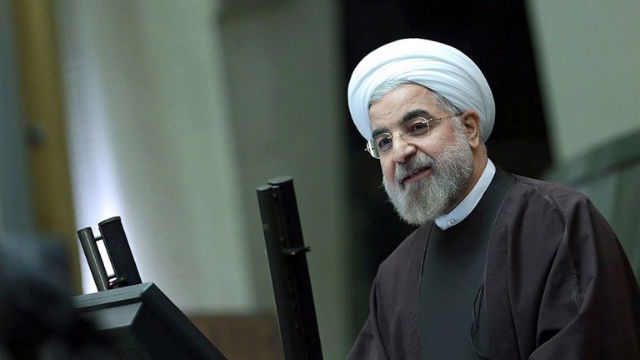SUMMARY
This is AI generated summarization, which may have errors. For context, always refer to the full article.

VIENNA, Austria – Nuclear talks between Iran and six world powers enter a critical phase Tuesday, May 13, amid tentative optimism as negotiators start hammering out a draft agreement ahead of a fast-approaching July 20 deadline.
Such a deal would reduce the scope of Iran’s nuclear programme in order to make any push towards atomic weapons all but impossible, while removing sanctions strangling Iran’s economy.
If achieved, this could resolve one of the most intractable geopolitical problems of the 21st century after a decade of diplomatic failure, rising tensions and talk of war, and even help mend US-Iran relations.
“If the odds of the talks collapsing are high, the stakes of failure are higher,” Ali Vaez, Iran analyst at the International Crisis Group, told Agence France-Presse. “Time is of the essence.”
Both sides want to build on an interim accord struck in Geneva in November that saw Iran take certain confidence-building steps for minor and quickly reversible sanctions relief. It expires in July.
After the three rounds of talks in Vienna between Iran and the five permanent members of the UN Security Council plus Germany so far, both sides have been cautiously upbeat.
One major issue, the Arak reactor, appears to have been resolved, with Iran indicating the design could be modified to ease concerns that it could produce weapons-grade plutonium.
Iran’s Foreign Minister Mohammad Javad Zarif, installed by bridge-building new President Hassan Rouhani last year, said after the last round that there was agreement on “50-60 percent” of issues.
But with both sides sticking to the mantra that “nothing is agreed until everything is agreed” – one US negotiator likened the process to a “Rubik’s Cube” – this is not enough.
“Even two percent (of issues) can torpedo all of it,” Zarif told Iranian media. And the remaining issues are “important ones,” he said.
Vaez said the toughest topics are the future scope of Iran’s uranium enrichment capacities, capable of producing the business bit of a nuclear bomb, and “untangling the spider web” of sanctions.
Further hurdles to clear include Iran’s development of new centrifuges that can enrich many times faster than the current models, and tougher inspections by the UN atomic watchdog.
Others are Iran’s development of ballistic missiles, which could carry nuclear warheads – it denies wanting atomic weapons – and its answers to questions about past alleged “military dimensions” to its nuclear work.
Party poopers
Even assuming a deal can be reached, celebrations could swiftly go pear-shaped if the accord falls short of satisfying hardliners in Iran, the United States and Israel.
In Iran, the knives are out among arch-conservatives seeking to erode the supreme leader’s already lukewarm support for Rouhani, said Siavush Randjbar-Daemi, an Iranian lecturer at Manchester University.
“Zarif and his team are between a rock and hard place,” Randjbar-Daemi told Agence France-Presse. “They really need to start showing some tangible gains and a clear pathway to lifting the sanctions.”
In Israel, the sole if undeclared nuclear-armed power in the Middle East, the official position – supported by some US lawmakers – has been that nothing short of a total dismantling of Iran’s nuclear program is acceptable.
However, media reports and recent comments from Israeli officials have indicated that Prime Minister Benjamin Netanyahu’s position may be softening as a possible deal with Iran begins to take shape.
Zarif last week went as far as to crow that thanks to Iran’s new foreign policy, Israel was facing “international isolation”.
So far, the six powers – the US, China, Russia, Britain, France and Germany – have shown a united front in their dealings with Iran.
Threatening to spoil this, however, is the crisis over Ukraine, which has seen relations between East and West plumb depths not seen since the Cold War.
“A nuclear-armed Iran is not in the best interests of Russia,” Kelsey Davenport from the Arms Control Association told Agence France-Presse.
“Washington and Moscow cannot let their political differences interfere with reaching a comprehensive nuclear agreement.” – Rappler.com
Add a comment
How does this make you feel?
There are no comments yet. Add your comment to start the conversation.